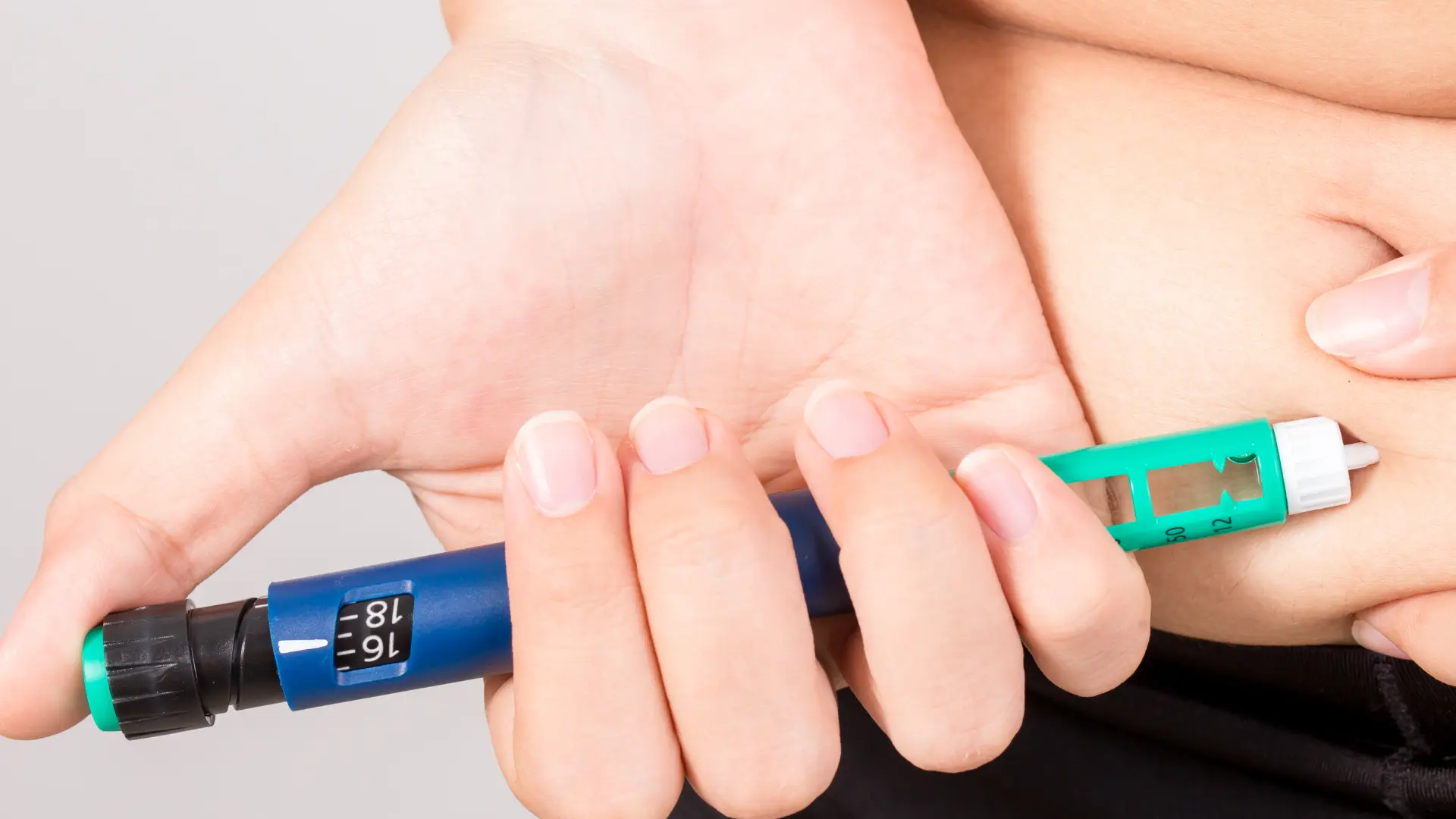Did you know that drinking alcohol significantly influences abdominal obesity? Regardless of body weight, abdominal obesity is linked to obesity-related health risks. These results emphasize the importance of promoting healthy drinking habits to mitigate health risks.
Uncontrolled drinking habits can contribute to weight-related risks, prompting individuals dealing with obesity to question the safety of consuming alcohol alongside prescription weight loss medications like Wegovy. However, despite Wegovy’s clinical safety and effectiveness, it remains crucial for individuals to seek professional advice throughout their weight loss journey and alcohol consumption.
This article will explore Wegovy and alcohol, the medication’s mechanism of action, and how alcohol consumption might impact its efficacy and safety.
Key Takeaways
- Medical professionals prescribe Wegovy with a reduced-calorie diet and increased physical exercise.
- Excessive alcohol drinking can lead to numerous diseases, such as brain damage, heart disease, liver cirrhosis, and cancer.
- While specific clinical studies about Wegovy and alcohol are unavailable, medical professionals may highly suggest avoiding alcohol to minimize potential Wegovy side effects and health risks during the treatment.
- Medical professionals’ individualized approach can include personalized recommendations that consider patients’ medical history, current condition, and weight goals for their treatment.
- Despite the Wegovy FDA approval and whether contemplating between Wegovy vs Saxenda, these weight loss prescription medications may cause potential side effects during treatment.
About: Medica Depot is your trusted all-in-one supplier, offering a range of high-quality medical injectables and supplies. If you’re looking to buy Wegovy, our dedicated sales agents can give you proper guidance. We offer a worry-free experience in searching for the best and most popular products on the market. Whether for health professionals, plastic surgeons, dermatologists, licensed estheticians, or other specialists, we can offer genuine, brand-name products you may need. With Medica Depot, we prioritize serving you better to improve the patient’s quality of life.
Understanding Wegovy and Its Mechanism of Action

Wegovy contains semaglutide, a glucagon-like peptide-1 (GLP-1) receptor agonist for weight loss management. It targets areas in the brain that regulate appetite and blood sugar levels. Similarly to naturally occurring GLP-1 receptor agonists, Wegovy mimics the hormones and helps patients control their appetite and reduce calorie intake, leading to weight loss.
Medical professionals prescribe Wegovy with a reduced-calorie diet and increased physical exercise. Moreover, it reduces the risk of major cardiovascular events in adults with established cardiovascular disease who are obese and overweight.
The Wegovy FDA approval underscores the safety and efficacy of the individuals undertaking the treatment. It has specific indications for the following conditions:
- To reduce the risk of major adverse cardiovascular events in adults with established cardiovascular disease and either obesity or overweight.
- To reduce excess body weight and maintain weight reduction long term in adults and pediatric patients aged 12 years and older with obesity and adults with overweight in the presence of at least one weight-related comorbid condition.
Wegovy works in the body by activating the GLP-1 receptors in the brain, regulating hunger and digestion. It suppresses the appetite, leading to reduced food intake and increased feeling of fullness. The combined effect of appetite suppression and reduced food consumption results in significant weight loss.
- Effects of Wegovy on Metabolism and Appetite Control: Wegovy promotes more significant fat reduction, contributing to overall weight reduction. As it signals fullness, Wegovy helps patients eat smaller portions, making weight management more sustainable.
Effects of Alcohol on the Body

Alcohol affects various aspects of health, especially when consumed too much. Excessive alcohol drinking can lead to numerous diseases, such as brain damage, heart disease, liver cirrhosis, and cancer. It’s worth noting that moderate drinking can still impact individuals’ health, including metabolism and potential weight gain.
After ingestion, alcohol is primarily broken down by the liver. Enzymes like alcohol dehydrogenase (ADH) and aldehyde dehydrogenase (ALDH) play crucial roles in this process. ADH converts alcohol into a toxic substance, and ALDH metabolizes it into harmless acetate. Alcohol is then eliminated from the body as water and carbon dioxide.
- Impact of Alcohol on Metabolism and Appetite: Alcohol distracts the body processes, slowing fat breakdown and delaying fat burning for up to seven hours after consumption. While it needs further clinical evidence, alcohol may raise appetite and interfere with the signals of feelings of fullness from the brain.
- Potential Interactions Between Alcohol and Weight Loss Medications: Combining Wegovy and alcohol or other weight loss medications may result in side effects, like dizziness, liver toxicity, etc. It may also affect glucose levels in individuals with diabetes and other potential impacts on patients with heart or liver diseases.
Clinical Data and Expert Opinions
While specific clinical studies about Wegovy and alcohol are unavailable, medical professionals may highly suggest avoiding alcohol to minimize potential Wegovy side effects and health risks during the treatment. As much as Wegovy can help in weight management, combining it with a proper diet and regular exercise can deliver optimal outcomes.
However, a 2023 study revealed that semaglutide may reduce alcohol consumption behaviors, potentially by diminishing alcohol-induced reward and affecting mechanisms in the nucleus accumbens (NAc). This animal study on rats exposed to alcohol and semaglutide led to weight loss.
Additionally, the research highlights that clinical studies should explore whether semaglutide can effectively reduce alcohol intake and body weight in overweight patients with alcohol use disorder. Despite this study, Wegovy and alcohol consumption in individuals require more in-depth clinical evidence to prove these results.
At present, healthcare professionals recommend caution when combining Wegovy and alcohol due to potential interactions and side effects. While no explicit warnings exist, monitoring liver function and avoiding excessive alcohol intake is prudent while consistently taking Wegovy injections.
Medical professionals’ individualized approach can include personalized recommendations that consider patients’ medical history, current condition, and weight goals for their treatment. The risks and benefits of Wegovy and alcohol remain uncertain, but potential risks may include Wegovy side effects, impact on liver function, and interaction with other medications.
Side Effects and Management

Despite the Wegovy FDA approval and whether contemplating between treatments like Wegovy vs Saxenda, these weight loss prescription medications may cause potential side effects during treatment. These side effects are often temporary and may resolve independently once the body adapts to the medication.
The common Wegovy side effects include nausea, diarrhea, vomiting, constipation, stomach (abdomen) pain, headache, tiredness (fatigue), upset stomach, dizziness, feeling bloated, belching, low blood sugar in people with type 2 diabetes, gas, stomach flu, heartburn, and runny nose or sore throat.
Alcohol provides empty calories, counteracting Wegovy’s benefits and ability to reduce weight in individuals. Impaired judgment caused by excessive alcohol consumption may hinder adherence to the Wegovy dosing schedule, dosage, and proper administration. Furthermore, it can interact with Wegovy’s mechanism, potentially affecting its efficacy.
If circumstances occur that patients consume alcohol, it’s essential to stay hydrated and monitor the body’s response to alcohol. Limit the alcohol intake, and patients may consult healthcare providers for personalized advice, understand Wegovy and alcohol, and know how to manage the Wegovy dosing schedule and injections.
Conclusion
The question of whether the combination of Wegovy and alcohol is safe is a complex one that requires careful consideration. While Wegovy has shown clinical safety and efficacy in weight management, the potential interactions between alcohol and this prescription medication raise concerns.
Further research is needed to understand better the specific interactions between Wegovy and alcohol, as well as the potential effects on individuals with alcohol use disorder. Individuals undergoing treatment with Wegovy should seek professional advice and exercise caution regarding alcohol consumption to minimize health risks and optimize their weight management outcomes.
FAQs
1. Is it safe to consume alcohol while taking Wegovy?
Combining Wegovy with alcohol may result in potential interactions and side effects, so it’s essential to exercise caution and seek professional advice.
2. How does alcohol consumption affect the effectiveness of Wegovy?
Alcohol can impact metabolism and appetite control and interfere with the mechanisms of weight loss medications, potentially affecting the efficacy of Wegovy.
3. What are the recommendations for individuals taking Wegovy with alcohol consumption?
Healthcare professionals advise caution when combining Wegovy with alcohol and recommend following a reduced-calorie diet and regular exercise for optimal weight management outcomes.
References
- Park, K. Y., Park, H. K., & Hwang, H. S. (2017). Relationship between abdominal obesity and alcohol drinking pattern in normal-weight, middle-aged adults: the Korea National Health and Nutrition Examination Survey 2008-2013. Public Health Nutrition, 20(12), 2192–2200. https://doi.org/10.1017/S1368980017001045
- Cajsa Aranäs, Edvardsson, C. E., Shevchouk, O. T., Zhang, Q., Witley, S., Sebastian Blid Sköldheden, Zentveld, L., Vallöf, D., Maximilian Tufvesson-Alm, & Elisabet Jerlhag. (2023). Semaglutide reduces alcohol intake and relapse-like drinking in male and female rats. EBioMedicine, 93, 104642–104642. https://doi.org/10.1016/j.ebiom.2023.104642









